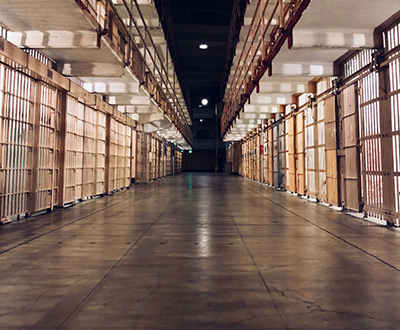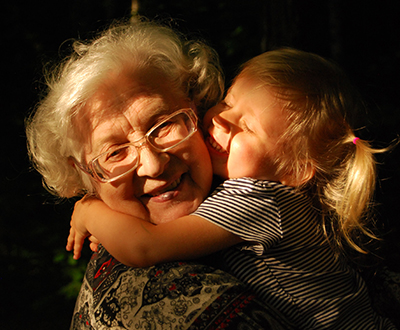
Welcome to the Pennsylvania Meaningful Family Engagement Toolkit. This online toolkit was developed by several cross-systems partners in PA and is a collection of useful resources that are thoughtfully categorized to assist all users in building and strengthening their engagement practices. In Pennsylvania, we define meaningful engagement in child welfare as:
"An active, ongoing, and genuine curiosity about an individual's history, perspectives, challenges, and accomplishments. Meaningful engagement is the purposeful and proactive partnership between caseworkers and families to increase safety for children by using solution focused inquiry to identify service needs and available supports and to work together to define achievable goals. This collaborative work will result in the development of family plans, address challenges, achieve goals, form new connections, and strengthen existing supports. It recognizes that families are the experts of their own experiences, assures their active role and voice, and empowers them to make joint decisions to ensure their children’s safety, permanency, and well-being.
Meaningful engagement is a family-centered and strengths-based approach that is driven by empathy, respect, and cultural appreciation and awareness. It requires honoring each family member’s history, perspectives, challenges, and accomplishments to foster the best partnership possible.
To be successful, everyone involved in the child welfare system must consistently and sincerely practice meaningful engagement. When families see themselves as part of the decision-making team, it helps ensure positive outcomes for Pennsylvania children.
”
To use the toolkit, simply find the category you would like to explore and read the descriptions of the resources in that category. Click on the description to be taken to that resource. If you have a suggested resources you would like to submit, click here. We are currently looking for resources for the following topics: Cross-systems Collaboration, Professional Development, and Navigating Custodial Relationships.
To learn more about this project, click the "About" link above.

Cultural Awareness and Responsiveness
- Reunification Tip Sheet
"American Bar Association’s Resource Family Tip Sheet for Supporting Reunification Center on Children and the Law spoke with foster families who were outstanding supporters of reunification to gather their insights on this topic. The tip sheet includes recommendations on the following themes:
- Respect birth parents and be compassionate - Encourage visitation and regular contact
- Communicate with the family regularly
- Remember that safe reunification is best for the children"
- Diversity Task Force
The mission of the Diversity Task Force is to achieve equity and inclusion in the child welfare system. We do so by promoting the values of cultivating, advancing, and preserving a culture of diversity and community because it makes us stronger. The Diversity Task Force challenges individuals to recognize their implicit bias and to confront all forms of systemic racism, harassment, and discrimination. - NCWWI Racial Equity Resources
This list of resources supports child welfare staff and leaders as they confront implicit bias, implement system changes, and work to achieve racial equity within their organizations and across systems. If you have resources to add to this collection, please contact Sharon Kollar at skollar@albany.edu. - Workforce Resource: Microaggressions, National Child Welfare Workforce Institute
This article evaluates microaggressions and proposes possible approaches to handling situations in which microaggressions occur. The authors delve into real-life experiences that they endured from the unique perspective of three different roles: witness, perpetrator, and target. - National Child Welfare Workforce Institute (NCWWI), Racial Equity Resources
This list of resources supports child welfare staff and leaders as they confront implicit bias, implement system changes, and work to achieve racial equity within their organizations and across systems. If you have resources to add to this collection, please contact Sharon Kollar at skollar@albany.edu. - Tribal Courts and Child Welfare: Being Family Centered
Tribal courts need to partner with child welfare departments to support family reunification and strengthen a family’s connection to their Tribe and its culture. Podcast and Transcript Resource. This episode, 'Being Family Centered,' is part of a series featuring the work of Tribal Court Improvement Program grantees. Listeners will hear examples of Tribal courts partnering with families and enabling families to shape how they use Tribal child welfare and support services for rehabilitation and reunification - Tribal Courts and Child Welfare: Partnering with Tribal Social Services
Child welfare and social services agencies must work in collaboration with juvenile and family courts. Both are responsible for protecting children and ensuring their safety, health, and well-being. Podcast and Transcript Resource. - Tribal Courts and Child Welfare: Building Relationships with State Counterparts
This episode, 'Building Relationships With State Counterparts', is part of a series featuring the work of Tribal Court Improvement Program grantees. The episode features successful examples from the Sitka Tribe of Alaska(opens in new window) and Saint Regis MohawkTribes, told by Tribal social service and court leadership. Podcast and Transcript Resource. - Tribal Courts and Child Welfare: Adapting to Child Wefare Cases
Adapting to Child Welfare Cases', is part of a series featuring the work of Tribal Court Improvement Program grantees. The episode shares the stories and perspectives from the Saint Regis Mohawk and Mashpee Wampanoag Tribes, told by a chief judge and chief of the Tribe’s Elders Judiciary Committee, respectively. Podcast and Transcript Resource. - African American Grandfamilies: Helping Children Thrive Through Connection To Family and Culture, grandfamilies.org, Website & Downloadable Toolkit
Both inside and outside the child welfare system, the probability that African American children will live in grandfamilies is more than double that of the overall population, with one in five African American children living in grandfamilies at some point during their childhood. - American Indian and Alaska Native Grandfamilies: Helping Children Thrive Through Connection to Family and Cultural Identity, grandfamilies.org, Website & Downloadable Toolkit
Latino population growth and diversity. Culturally appropriate services are needed to support Latino families as they navigate kinship care placements, which appeal to the family system fundamental to Latino culture.
Return to menu

Engagement Models and Strategies
- Reunification Tip Sheet
This resource identifies several key engagement strategies and themes that focus on the importance of healthy and meaningful engagement of birth and resource parents. - Icebreaker meetings
On this resource you will find information on the practice of using Icebreaker Meetings as a way to bridge the gap between birth and foster parents. - Resources for Holding Icebreaker Meetings
This website provides resources for developing and implementing the Icebreaker Meeting Model. - Family Group Decision Making
This informative resource provides a brief look at the Engagement Practice of Family Group Decision Making and how it is structured in Pennsylvania. - Engagement of non-custodial parents and engagement of out-of-state parents
This website provides multiple to links to a plethora of Family Engagement Models and Practices. - Evaluating Family Engagement in Child Welfare: A Primer for Evaluators on Key Issues in Definition, Measurement, and Outcomes
This resource provides an overview of key issues when evaluating a family engagement program or practice, including how family engagement is commonly defined in the child welfare context, an overview of models and practices, and theoretical and methodological concerns. - Bridging The Gap of Separation Between Children and their Families
This pdf provides practice information regarding the Bridging the Gap program - Eco-Map
This resource provides instructional information regarding the engagement strategy of using eco maps - Plans of Safe Care for Infants With Prenatal Substance Exposure and Their Families
This link contains several engagement practices and strategies about working with families who have infants with prenatal substance exposure - Children's Trust Fund Alliance
This website has information on the Strengthening Families Protective Factor Framework. - Plans of Safe Care for Infants With Prenatal Substance Exposure and Their Families
This link contains several engagement practices and strategies about working with families who have infants with prenatal substance exposure - Center for Study of Social Policy
This website provides several comprehensive resources about the five protective factors for Strengthening Families - Six Steps to Find a Family: A Practical Guide to Family Search and Engagement
This PDF provides a practice guide and strategies for searching for and engaging families. - Recipes for Success: Activities for Children and Parents Together
This PDF provides a collection of activities and strategies to engage children. - Family Visits Are an Essential Service for Youth in Foster Care
This article describes the importance of family visits for youth in care while also providing some ideas for how to facilitate those visits safely and effectively. - Partnering to Support Virtual Visits
This article provides some engagement strategies to support virtual visits.
Return to menu

Engagement of Incarcerated Parents
- February 2024 FGDM Statewide Webinar: A Lead of Faith: Engaging Incarcerated Parents Using FGDM to Plan for Their Children’s Safety, Permanency, and Family Well-Being
This event helped participants to describe the value of engaging incarcerated parents in the FGDM process, Identify the complexities and challenges of using FGDM with incarcerated parents, collaborate with other child welfare professionals to discuss ideas and share resources for meeting the complexities and challenges of practicing FGDM with incarcerated parents, describe how to engage incarcerated parents in the FGDM process, and develop skills to practice FGDM with families with incarcerated parents. - Reunification Tip Sheet
American Bar Association’s Resource Family Tip Sheet for Supporting Reunification Center on Children and the Law spoke with foster families who were outstanding supporters of reunification to gather their insights on this topic. The tip sheet includes recommendations on the following themes:
- Respect birth parents and be compassionate
- Encourage visitation and regular contact
- Communicate with the family regularly
- Remember that safe reunification is best for the children" - January 2017 Webinar: Supporting Fathers and Families Impacted by Incarceration
This webinar offered tips on how fatherhood programs can work to improve outcomes for incarcerated fathers and their families and present examples of programs that are helping fathers as they return to their families and communities - Complete Guide to Father Involvement
This PDF is a comprehensive resource for implementing Father Involvement Programs. - Dependent Children of Incarerated Parents
The Dependent Children of Incarcerated Parents Workgroup, commissioned by the Pennsylvania State Roundtable was formally launched in September 2011 to develop recommendations about engagement of incarcerated parents in case planning, coordination and delivery of services, visitation, and hearing participation. This webpage provides resources to help meet this goal, including the Dependent Children of Incarcerated Parents Action Packet, a concrete resource for caseworkers and those with additional roles within court cases - Child Welfare Practice with Families Affected by Parental Incarceration
This bulletin provides an overview of the intersection of child welfare and parental incarceration; highlights practices to facilitate parent-child visits during incarceration, include parents in case planning, and work toward reunification; and points to resources to help caseworkers in their practice with these children and families. - Working with the Correctional System and Incarcerated Parents
This podcast, 'Working With the Correctional System and Incarcerated Parents', features a conversation between those with experience on both sides of the working relationship between the child welfare and correctional systems - Child Welfare Practice With Families Affected by Parental Incarceration
This document “provides an overview of the intersection of child welfare and parental incarceration; highlights practices to facilitate parent-child visits during incarceration, include parents in case planning, and work toward reunification; and points to resources to help caseworkers in their practice with these children and families.” - Engaging Incarcerated Parents
This resource from the Adoptive and Foster Family Coalition of New York provides practical practice tips for working with and engaging incarcerated parents - Pennsylvania Department of Corrections: For Family and Friends Page (includes Sesame Project, Read to your Children, Female Transitional Unit, Inside Out Dad, Project IMPACT at SCI Muncy, Special Spaces, Family Days, Transitional Housing Units, and Puppy Programs, several other resources.)
"This webpage from the PA Department of Corrections contains information about programs for inmates, friends, and families. These resources include information about:
- Programs to help inmates engage with their children
- Parenting education programs within DOC facilities
- Inmate visitation and calls
- Transportation services
- Family days programs
- Child resource information
- How to send mail, email, and money to inmates" - Little Children Big Challenges: Incarceration. A guide to support parents and caregivers
Sesame Street created this Guide for Parents and Caregivers to help you
- use everyday routines to help your child
- encourage your child (ages 3–8) to express his feelings
- talk with your child about incarceration
- connect with your child’s incarcerated parent - Statewide Adoption and Permanency Network (SWAN) Legal Services Initiative (LSI) Incarceration resource manual
A comprehensive tool for child welfare professionals to use for case planning with incarcerated parents and as a resource to support the county agencies’ efforts to engage with these parties.” This resource manual provides county by county listing of prisons and information about contact and visitation - Federal Bureau of Prisons Inmate Locator
Locate the whereabouts of a federal inmate incarcerated from 1982 to the present - Guide for Incarcerated Parents Who Have Children in the Child Welfare System
The purpose of this guide is to help parents involved in the criminal justice system work with the child welfare system to stay in touch with their children and stay involved in decisions about their children’s well-being. The guide also includes important information on steps required by the child welfare system for reunification, or having children return home to their family after foster care. - How To Explain Jails and Prisons to Children (Caregiver's Guide)
Resource to encourage open and honest communication between children and adults. - Federal Bureau of Prisons Visitation Page
This webpage helps families of those incarcerated in Federal Prisons plan and schedule visitation - Suggestions for Engaging Families When a Parent is Incarcerated
This blog post contains concrete practice level tips for engaging with families dealing with incarceration. - Pennsylvania Prisons Inmate Locator
This webpage helps to locate the whereabouts of a current Pennsylvania inmate.
Return to menu

Engagement of Out-of-State Parents
- Out of State and Out of Luck: The Treatment of Non-Custodial Parents Under the Interstate Compact on the Placement of Children
This scholarly article examines how states and courts have interpreted the ICPC, and how it "creates obstacles for out of state, non-custodial parents to obtaine custody of their children in foster care." It includes reform proposals. - SWAN Permanency Toolkit: Interstate Compact on the Placement of Children
This page is part of the SWAN Permancy Toolkit, in the History of SWAN/Interstate Compact section. It provides an overview of the ICPC including: how it works, why is it necessary, when it does and does not apply, when it applies to placing a child with a parent, and other considerations. - Seneca Center Todo Por Mi Familia: Resources for Families Forcibly Separated at the US Border
This webpage provides information on how to contact Seneca, who "provide(s) free, confidential mental health services to families who were forcibly separated at the US border."
Return to menu

Engaging Youth
- Reunification Tip Sheet
This resource is a PDF that provides tips on how to engage children during reunification. - Best Practice for Father-Child Visits in the Child Welfare System
This resource provides several best practice markers for Father-Child Visits - Recommendations for Improving Permanency and Well-being
This resource provides a summary of key recommendations made from the Youth Engagement Team designed to integrate youth voice. - Youth Fostering Change Youth Assessment Questionnaire: A Tool for Youth to Provide Input into Child Welfare Placement Decisions
This is a tool made by youth with experience in the child welfare system to give older youth a voice when decisions are made about where they will live. - Spaulding for Children: Core Teen Curriculum
This provides access to a curriculum for prospective and current parents who are or will be raising older children from foster care who have moderate to severe emotional and behavioral challenges - PA Youth Advisory Board
The Pennsylvania Youth Advisory Board (YAB) is comprised of current and former substitute care youth ages 16-21. Youth leaders on the YAB educate, advocate, and form partnerships to create positive change in the substitute care system. - FGDM Statewide Webinar: Utilizing FGDM to Reduce Congregate Care
This webinar discusses how the Family Group Decision Making (FGDM) model can be used in the Pennsylvania child welfare system to prevent and reduce congregate care placements of youth.
Return to menu

Father Engagement
- What About Fathers? A Child Welfare Documentary
This documentary produced by UC Davis Extension's Center for Human Services shines a spotlight on Child Welfare Services' efforts to bring fathers out of the shadows and into their children's lives. - Complete Guide to Father Involvement
This PDF is a comprehensive resource for implementing Father Involvement Programs. - Best Practice for Father-Child Visits in the Child Welfare System
This resource provides several best practice markers for Father-Child Visits. - CalSWEC Father Engagement and Father Involvement Toolkit
This resource is an interactive guide to implementing a father engagement practice - Father Involvement: Dance Like a Dad - 2019 PSA
This Public Service Announcement is a brief, and adorable video promoting active Dads. - National Responsible Fatherhood clearinghouse
This website provides numerous articles and strategies on supporting strong fathers and families. - Engaging Fathers- Putting Lessons into Practice Part 1
Podcast Episode 71: Engaging Fathers – Putting Lessons Into Practice” is a three-part series to share strategies implemented from three of the five State or county agencies: Los Angeles county, California; Hartford, Connecticut; and Prowers county, Colorado. - Engaging Fathers- Putting Lessons into Practice Part 2
Podcast Episode 72: Engaging Fathers – Putting Lessons Into Practice” is a three-part series to share strategies implemented from three of the five State or county agencies: Los Angeles county, California; Hartford, Connecticut; and Prowers county, Colorado. - Engaging Fathers- Putting Lessons into Practice Part 3
Podcast Episode 73: Engaging Fathers – Putting Lessons Into Practice” is a three-part series to share strategies implemented from three of the five State or county agencies: Los Angeles county, California; Hartford, Connecticut; and Prowers county, Colorado. - Dads: Making A Difference
This PDF provides information on the different ways of parenting support child development. - Father Engagement
This link brings you to the Office of Children and Families in the Courts website, specifically to their information on father engagement. - Fatherhood Discussion with Almialik Taylor
Interview with a successful single father who shares the challenges single fathers face in the family court, county and human services systems. - Fatherhood Discussion with Mike Taylor
Interview with Dad Well Done Founder Mike Taylor, who relayed his experiences as a father and as a child who grew up with separated parents. - Fatherhood Discussion with Tony Bickel
Interview with Tony Bickel, the Executive Director of Wisconsin for Children and Familiues relaying the challenges that single fathers face.
Return to menu

Parent Leadership
- Parent Leadership
The Pennsylvania Child Welfare Resource Center (CWRC) is hosting parent listening sessions and wants to hear from you. Parents are the experts regarding the needs and strengths of their families. This expertise provides opportunities for partnership with professionals in the child welfare system. This website will provide more information about the listening sessions and has a link to SUBMIT an application. - Birth Parent National Network (BPNN)
The Birth Parent National Network (BPNN) is a national network of hundreds of birth parents and organizations working together to strengthen families, communities and systems by engaging the voices of parents. BPNN is great at promoting birth parents as leaders and strategic partners in prevention and child welfare systems reform. - Birth and Foster Parent Partnership (BFPP)
The Birth and Foster Parent Partnership (BFPP) is an innovative approach that creates authentic partnerships among parents who advocate for policy and practices that benefit children and families. - Parent Voice
The Alliance works with multiple parent groups, including the Alliance National Parent Partnership Council (ANPPC), the Birth Parent National Network (BPNN) and the Birth and Foster Parent Partnership (BFPP). We also honor all of the work that our members do to partner with parents at the state and community level. The Alliance’s parent organizations generate and create, both individually and collaboratively, many resources that share their parent voice. It is our hope that the resources you find here will help you share and celebrate Parent Voice! - Birth and Foster Parent Partnership: A State and Local Leader's Guide to Building a Stong Policy and Practice Foundation
This guide shares lessons learned about culture, practice, and policy transformation from Quality Parenting Initiative (QPI)1 jurisdictions that have been working to implement system changes to prioritize relationships and support co-parenting. - Birth and Foster Parent Partnership: A Relationship Building Guide
It is always better for children and youth to remain with their birth families if it is safe to do so. When foster care is necessary, the goal is to provide a temporary safe, stable and nurturing environment for children and adolescents while actively seeking and supporting reunification with their families. A robust relationship between a child or youth’s birth parents and foster parents or kinship caregivers can help achieve this outcome and reduce trauma for everyone. These relationships are best nurtured when child welfare staff, parent partners, court and legal personnel, court advocates, foster parent organizations and other service providers are supportive and help facilitate early and ongoing communication. - Birth and Foster parent Partnership: Matrix of Birth and Foster Parent Strategies
This document includes strategies nationwide that the BFPP has collected to help birth parents and foster parents work together to keep children safe at home whenever possible and to facilitate reunification and prevent re-entry when foster care is necessary. The matrix includes the name and a description of the strategy, contact information and the locations where the strategy currently exists.
Return to menu

Legal
- Psychiatric Medication and Foster Care Preserving the Parent's Voice
This video highlights parental rights in navigating psychiatric medication while their child is in out of home placement in foster care. - Reasonable and Active Efforts: A Tool to Prevent Removal and Reunify Families
This tool outlines goals and requirements of reasonable and active efforts (ICWA), and special consideration for cases involving infants and toddlers and other specific child welfare issues. - Humanizing Reasonable Efforts
This resource strategies for humanizing reasonable efforts and authentically engaging families in child welfare proceedings. - Engagement of non-custodial parents and engagement of out-of-state parents
This resource is designed to assist select counties in furthering collaborative efforts between the judiciary and child welfare agency to enhance meaningful family involvement in the child welfare system. It focuses on three core elements: Family Finding, Crisis/Rapid Response Family Meetings and Enhanced Legal Representation. - Tribal Courts and Child Welfare: Overcoming Challenges to Working with States
This resource is an episode of a the podcast series featuring the work of Tribal Court Improvement Program grantees. This episode is entitled “Overcoming Challenges to Working With States” and shares examples of Tribal court and Tribal child welfare agencies navigating legal and jurisdictional challenges. - Kinship Caregiving Options
The resource helps kinship families and the professionals who assist them compare caregiving options.
Return to menu

Parent Engagement
- Pennsylvania Family Support Alliance
The Pennsylvania Family Support Alliance provides education, support, and training programs to make Pennsylvania safe for children. Parents can find resources to support them and their families by clicking on Resources and Parents & Caregivers or Communities. - Pennsylvania Strengthening Families
Strengthening Families™ is an approach to working with families that builds upon family strengths, rather than focusing on deficits. It is not a curriculum or a program but instead offers a framework of five research-based Protective Factors that serve as a foundation for parents to rear healthy children in a safe environment. - Resources for Parents & Families
As you work with your caseworker and the court system, you may find that you need some other specific information that applies to your situation. There are a number of resources you might want to consider. - Online Parent Cafe's
Be Strong Families has become internationally known as an innovator in using structured, small group conversations, called Café's, to facilitate transformation and healing within families, build community, develop peer-to-peer relationships, and engage parents as partners in the programs that serve them. - PA Resource Search by County
PA Families Inc. (PFI) is a not for profit Statewide Family Network providing support to families raising children and youth with emotional, behavioral, and special needs, as well as serving as an advocate in the different child serving systems. The PA Families, Inc. website was developed with PA System of Care Partnership resources which is a cooperative agreement funded by the Substance Abuse & Mental Health Services Administration (SAMHSA). - Help for Parents and Caregivers of Children
Help for parents and caregivers of children living in Allegheny county. - Office of Children, Youth and Families: Types of Services
The Office of Children, Youth and Families (CYF) protects children, 18 years of age and younger, from abuse and neglect and works with families to provide a safe and loving permanent home for children. When a family is accepted for services, CYF coordinates efforts with the family and its natural supports, as well as other DHS program offices, to offer a wide range of options for families.
Return to menu

Teaming with Extended Family and Kin
- Reunification Tip Sheet
This resource is a PDF that provides tips on how to engage resource families during reunification. - Icebreaker meetings
On this resource you will find information on the practice of using Icebreaker Meetings as a way to bridge the gap between birth and foster parents. - Resources for Holding Icebreaker Meetings
This website provides resources for developing and implementing the Icebreaker Meeting Model. - Family Engagement: Partnering with Families to Improve Child Welfare Outcomes
This PDF document provides an overview of the foundational elements, strategies and promising practices for implementation of a family engagement practice that promotes partnering with families to improve outcomes for children and families. - Kinship Caregiving Options
This resource provides a summary of key recommendations made from the Youth Engagement Team designed to integrate youth voice. - Recommendations for Improving Permanency and Well-being
This resource provides a summary of key recommendations made from the Youth Engagement Team designed to integrate youth voice.
Return to menu